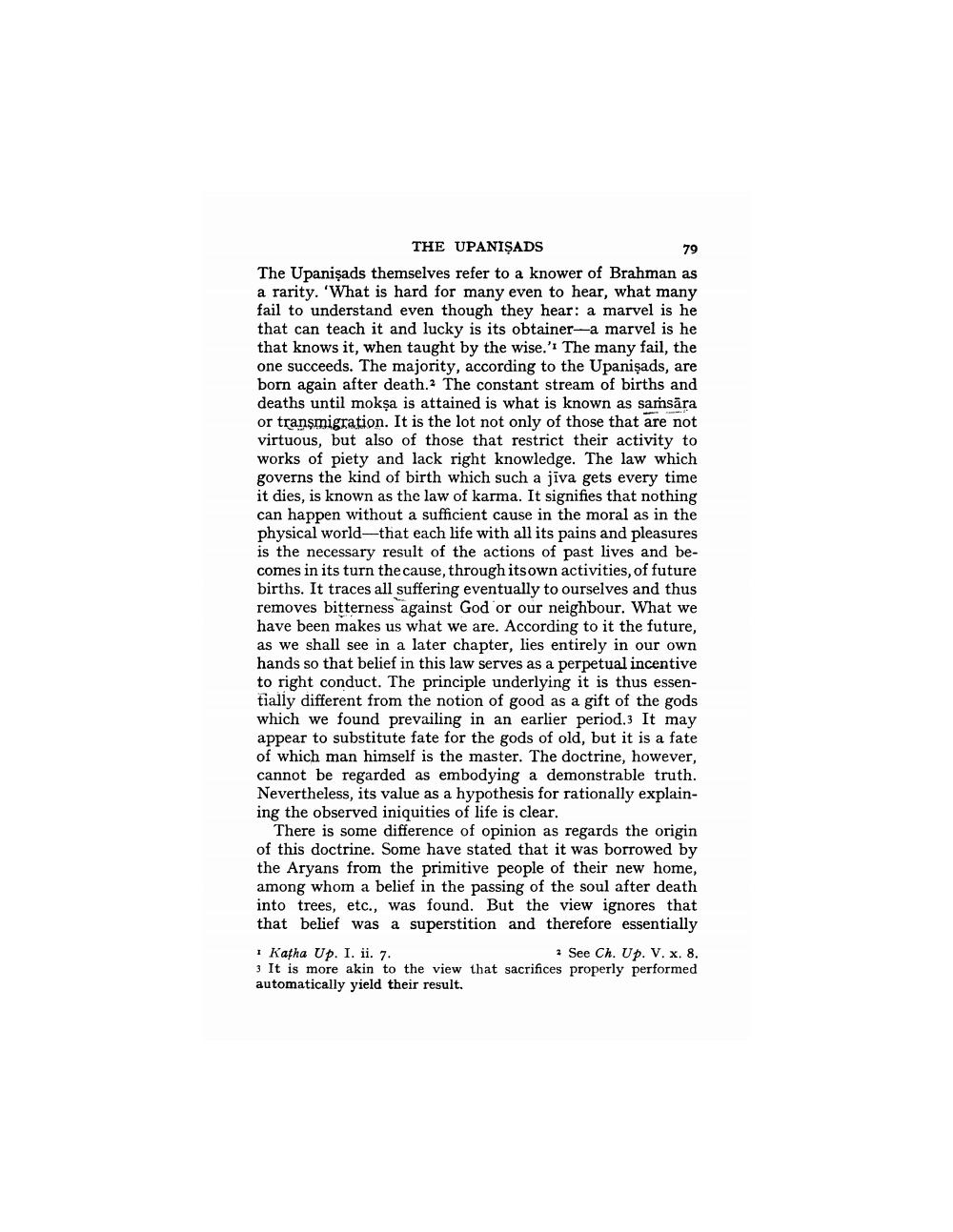________________
THE UPANIȘADS
79
The Upanisads themselves refer to a knower of Brahman as a rarity. 'What is hard for many even to hear, what many fail to understand even though they hear: a marvel is he that can teach it and lucky is its obtainer-a marvel is he that knows it, when taught by the wise.' The many fail, the one succeeds. The majority, according to the Upanisads, are born again after death. The constant stream of births and deaths until mokṣa is attained is what is known as saṁsāra or transmigration. It is the lot not only of those that are not virtuous, but also of those that restrict their activity to works of piety and lack right knowledge. The law which governs the kind of birth which such a jiva gets every time it dies, is known as the law of karma. It signifies that nothing can happen without a sufficient cause in the moral as in the physical world that each life with all its pains and pleasures is the necessary result of the actions of past lives and becomes in its turn the cause, through its own activities, of future births. It traces all suffering eventually to ourselves and thus removes bitterness against God or our neighbour. What we have been makes us what we are. According to it the future, as we shall see in a later chapter, lies entirely in our own hands so that belief in this law serves as a perpetual incentive to right conduct. The principle underlying it is thus essentially different from the notion of good as a gift of the gods which we found prevailing in an earlier period.3 It may appear to substitute fate for the gods of old, but it is a fate of which man himself is the master. The doctrine, however, cannot be regarded as embodying a demonstrable truth. Nevertheless, its value as a hypothesis for rationally explaining the observed iniquities of life is clear.
There is some difference of opinion as regards the origin of this doctrine. Some have stated that it was borrowed by the Aryans from the primitive people of their new home, among whom a belief in the passing of the soul after death. into trees, etc., was found. But the view ignores that that belief was a superstition and therefore essentially
1 Katha Up. I. ii. 7. 2 See Ch. Up. V. x. 8. 3 It is more akin to the view that sacrifices properly performed automatically yield their result.




